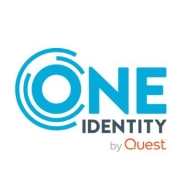

IBM Security Secret Server and One Identity Privileged Access Suite for Unix are leading solutions in privileged access management. One Identity stands out for its robust feature set, while IBM Security Secret Server is favored for competitive pricing and efficient support.
Features: IBM Security Secret Server is noted for its strong integration capabilities, secure password storage, and efficient support. One Identity offers an extensive range of features, including advanced access controls, sophisticated automation, and superior automation tools.
Room for Improvement: IBM Security Secret Server could enhance scalability, interface customization, and reporting capabilities. One Identity users suggest improvements in reporting, support responsiveness, and interface customization.
Ease of Deployment and Customer Service: IBM Security Secret Server provides a straightforward deployment process with strong customer support. One Identity involves more complex configurations but offers flexibility post-deployment.
Pricing and ROI: IBM Security Secret Server is considered more affordable, offering quicker ROI due to lower setup costs. One Identity requires a higher initial investment, which is viewed as worthwhile for those seeking comprehensive features.


IBM Security Secret Server protects privileged accounts from hackers and insider threats, helps ensure compliance with evolving regulations, and allows authorized employees to seamlessly gain access to the tools and information they need to drive productivity. Easily detect, manage and audit privileged accounts, and control which applications are permitted to run on endpoints and servers to prevent malicious applications from penetrating the environment. IBM Security Secret Server is fast to deploy, easy to use and scalable for the enterprise.
The Privileged Access Suite for Unix is a one-stop shop for UNIX security that combines Active Directory bridge and root-delegation solutions in one console. It extends the authentication and authorization of Active Directory to UNIX, Linux, and Mac OS X users consolidating and unifying identities. Plus, it assigns individual accountability, enables least-privilege access and centralizes access reporting of the UNIX root account.
We monitor all Privileged Access Management (PAM) reviews to prevent fraudulent reviews and keep review quality high. We do not post reviews by company employees or direct competitors. We validate each review for authenticity via cross-reference with LinkedIn, and personal follow-up with the reviewer when necessary.